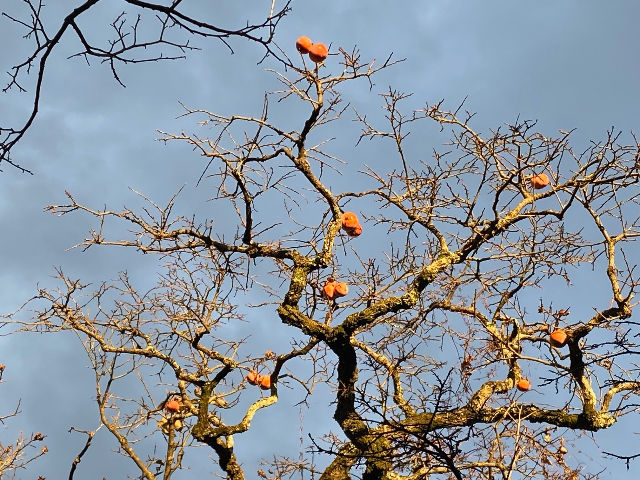BEING COMPLICIT
- Rebecca Otowa
- Jun 6, 2020
- 5 min read
Updated: Jun 9, 2020

Amid the coronavirus upheaval and the recent unrest in the United States, I read an article in The Atlantic entitled “History will Judge the Complicit”. It was about how the people surrounding a corrupt or evil leader explain to themselves how they can continue to make excuses for their own inactivity or refusal to resist. It was a very interesting article and made me think of the ways in which we are all complicit in our daily lives. By this I mean that in various ways we all do less or other than we know we ought to, keep silent when we see a wrong, or play dumb, and then make excuses, rationalizing our behavior till we can somehow live with it. As David Sedaris says, “some things you can sit on, and some things you can’t.”
For example, most of us know of the horrific suffering of domestic animals kept commercially for food. Yet we continue to go to the supermarket and buy that very meat. However many excuses we make, bottom line, this makes us complicit in the suffering of those animals. Of course, we can say that alternative sources of meat are scarce, expensive and hard to locate. But they do exist, as do the options of vegetarianism or veganism. Yet even if we choose to be vegetarian, we really know little about the sufferings of domestic plants grown for food. What if they are suffering just as animals are? Every act of eating means an act of killing – that is the nature of life on this planet. But there are various ways of getting enough food to eat.
If we are sensitive to these issues, we try to make exceptions in our diets for particularly hard cases. I myself will not touch whale meat, which is commonly sold in Japan, and I also have two other no-no animal foods – eel and octopus – which I have crossed off my list for rather arbitrary reasons. But I chow down on supermarket meat regularly. I am complicit. I am not proud of this. Why is it so hard for us to do right when we know what right is?
Recently in my house I have welcomed my elder son, his wife, and their two children to live with us as the next generation of our family. (See post # 11, “House or Humans”.) I know that they are making all kinds of concessions, moving straight to the rather boring, comfortless, conservative countryside, after the past eight years in the United States. Particularly hard for them to get used to are the many critters we share the house and land with, large and small, friendly and hostile, harmless and dangerous. Their instinct, in common with many (most?) other people, is to squash first and ask questions later. To be fair, after two months here, the children do tend to ask questions first, and when they hear the answers, they seldom squash.
Among the less creepy are the house martens, little birds like swallows that return to the same place every spring to build mud nests under the eaves, lay eggs, and raise families. I have welcomed them every year, even though our particular birds are invariably disappointed in their reproduction, as snakes come into the shed where they build and eat the eggs or the newborn chicks. Well, that’s the cycle of life, I think. It’s heartbreaking but it’s understandable – after all, snakes have to eat too. I don’t think I have ever seen a group of nestlings come to adulthood and fly away from the nests in our house. Still, they have been there ever since I can remember.
Anyway, my family, for various reasons, decided they didn’t want these birds in the shed. Admittedly they do make a mess with their droppings, but many neighbors have these birds living with them and have devised various ways to cope with this. The shed doors were covered and the birds shooed away. They came back time and again, they were very persistent, and even now they sometimes appear to see if things have changed. I don’t raise my voice in their defense. I shooed them away as well, because I know it is the will of the family.
I have not been sleeping well recently, and I remember one night when I went out into the front yard in the middle of the night. Weeping, I asked forgiveness of the birds and all the other little creatures that have had such a quiet time coexisting with my husband and me the past 20 years. Not only do they have to cope with new people and new rhythms, they are being chased and harried wherever they turn.
I am complicit – I know it. For the sake of avoiding arguments and bad feeling between me and the new family who are making such an effort to adapt to our home, I have had to give way on the martens and other critter-related issues. I have come down on the side of the family. Of course some of these critters, like centipedes and hornets, are actively dangerous. But martens? Their only crime is that they are messy. It hurts my heart.
This may not seem so important, but in conjunction with that article in The Atlantic, I have had to think why I made myself complicit in this decision about the birds. For many years I have thought of my house as a kind of Totoro’s tree where all living things coexist in harmony. True, I have had times when critters staked out various parts of the house (like the badger-like animal living under my office floor, frogs sitting next to my kitchen sink, stray cats above the ceiling, etc.). Why, I could ask myself, have I put up with all these encroachments? I can rationalize and say that I don’t want to be enemies with any of the earth’s living things, but maybe, underneath, it is sheer laziness. I don’t want to deal with it, so I have just let things slide to the point where my new family are horrified at the numbers of random living creatures in our house. Is this the truth? The critters honestly don’t bother me; I have worked hard over the years to conquer my early conditioning and my urge to squash, and one by one, cross one creature after another off the list of the repulsive, until hopefully when I die, the list will be empty. This is my dream. Is this normal? Or just lazy?
I have to accept the decisions made by the next generation, including those about what critters will or won’t be allowed. It does, though, sometimes seem like a betrayal. Will history judge me?
Postscript: I have decided that, like the protesters in the United States (not the violent agitators), whatever the actual result, I have to speak up when I see what I regard as an injustice. I will make my opinions and feelings known. “I would like to go on record as saying that…” After 40 years of caring for the house, it is my right as well as my duty.



I find myself moving closer and closer to what I think is called "fruitarian," that is eating only what plants freely give us or what can be taken without harm to the plant. Nuts. Seeds. Fruits. I have increasing difficulty with eating whole plants (No carrots? No scallions? Onions and garlic ONLY after they die off? Really, Claire? Aren't you getting a bit ridiculous? Whether I think I am or not varies from day to day.) And while I am still good with leaves and tubers, I find my conscience, too, gets more prickly as I age. I keep thinking that if I were Mother Nature I would do a better job, but I'm not, and I do recognize the…
Think of this, too: If the birds are chased out of the shed, they will build their nest somewhere else, and the new location might be better for them and improve the odds of their babies surviving.